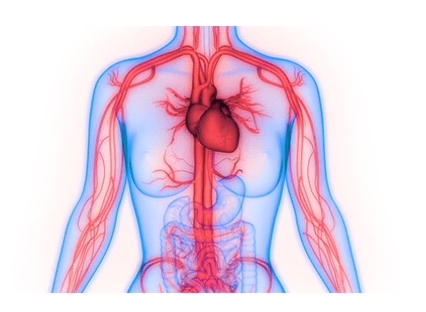
Here are 12 reasons why seeing a Cardiologist is a good idea.

You've probably considered whether or not to see a cardiologist at some time. Heart disease is the top cause of mortality for both men and women in the United States, so it's no surprise that it's on your mind. Cardiologists that specialize in the heart are known as general cardiologists. A periodic check-up with this expert physician can help you stay on top of your heart health if you are at risk for heart disease.
- A cardiologist has been recommended by your primary care provider. If your family doctor notices a red flag during your exam, he or she may want to have your heart examined more thoroughly. It's also possible that your personal or family history necessitates a visit to a cardiologist. If your primary care physician advises you to see a cardiologist, follow his or her advice.
- History of the family. There is a substantial hereditary component to heart disease. Do some research, make a family tree, and interrogate your relatives about their health history. Take action and see a cardiologist if you observe a trend of heart problems, such as excessive cholesterol or blood pressure.
- High Blood Pressure is a condition that affects many people. From the age of 20, blood pressure should be checked on a regular basis. It's critical to get your blood pressure under control if it's on the rise or has always been high. High blood pressure is a significant risk factor for heart disease and stroke, so knowing your levels is crucial to avoiding a cardiac catastrophe.
- Cholesterol levels are high. Increased cholesterol produces no symptoms and is difficult to control. Getting cholesterol under control is critical since it is one of the most important risk factors for heart disease. More information about maintaining a healthy cholesterol level may be found here.
- Preeclampsia has a long history. According to the Preeclampsia Foundation, women with a history of preeclampsia (high blood pressure during pregnancy or the postpartum period) have a twofold increased risk of heart disease. Those who birth preterm babies or have had this problem more than once may be at an even higher risk.
- The age of your heart is older than your actual age. Do you know how much of a danger you are for heart disease? If you don't know, take a moment to find out right now.
- The Origins of Smoking. If you smoke at any point in your life, you increase your chances of getting heart disease. Making an appointment with a cardiologist may not be a terrible idea if you are or have been a smoker.
- You've been told you have diabetes. Adults with diabetes are two to four times more likely than those without diabetes to have heart disease. Diabetes is one of seven primary preventable risk factors for heart disease, according to the American Heart Association. Take action and strive to get it under control.
- Childhood Congenital Heart Disease One widespread misunderstanding among people born with congenital heart disease (CHD) is that if the condition is corrected as a kid, no further treatment is required. This isn't correct. In fact, having a routine check-up with a specialist cardiologist during adulthood improves the quality of life of people who underwent CHD surgery as children.
- Getting into a New Workout Routine. If you live an inactive lifestyle or have heart disease, renal illness, or type 1 or type 2 diabetes, the American College of Sports Medicine suggests seeing a doctor before engaging in moderate to high intensity exercise. A cardiologist may check for any underlying cardiac conditions you may be unaware of and make sure you aren't suffering from any.
- Gum disease is a condition that affects the teeth and gums There is a relationship between the health of your gums and the health of your heart. Gum disease bacteria can spread across the body, infecting heart valves and causing inflammation in blood vessels. Aside from seeing a cardiologist, make excellent oral hygiene a priority and visit your dentist every six months for a check-up and cleaning.
- You're either a cancer patient or a cancer survivor. All cancer patients and survivors should make an appointment to have their hearts examined, according to cardio-oncologists (cardiologists who specialize in caring for cancer patients). Because certain cancer therapies can harm the heart or place a burden on the heart muscles and blood vessels, this is the case.
You might be shocked to learn that chest discomfort isn't among the symptoms we've listed. That's because the best thing to do if you're having new and persistent chest discomfort is to dial 911. Don't put off getting help.
Of course, getting your heart examined by a cardiologist is crucial, but so are adopting lifestyle adjustments to improve your heart health. With a few easy modifications, many of the aforementioned risk factors for heart disease can be reduced. It's never too late to devise a strategy for living a healthier lifestyle!
We are just a call or click away. To learn more, book an appointment online or over the phone with PeachState Advanced Cardiac & Endovascular. We have several locations in Georgia: Newnan, Atlanta, & Griffin.
You Might Also Enjoy...


Should I be worried about my numb feet?

Can leg cramps be a sign of something serious?

Meet Dr. Odiete - PACE Cardiovascular Specilaist

Keeping your Vascular System Healthy


